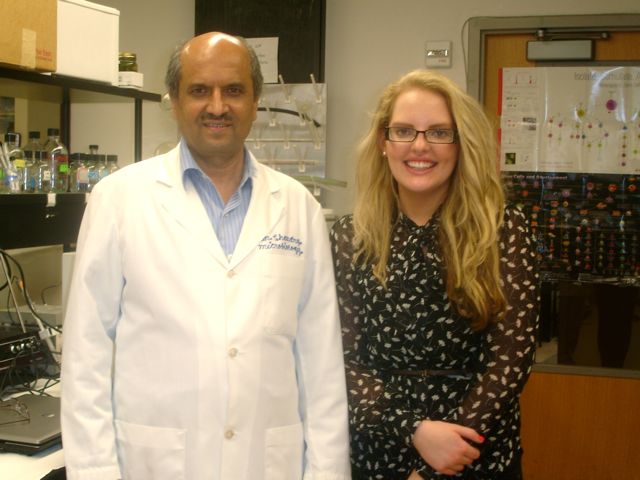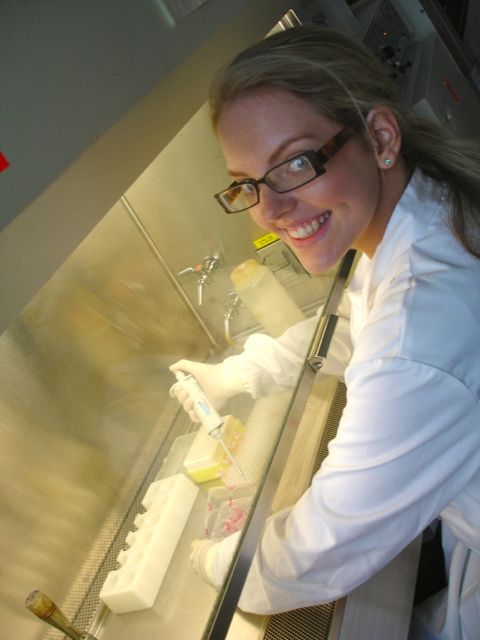An international student who spent the summer researching at Oakland University has returned to campus this fall as a guest speaker at the upcoming Second Midwest Conference on Stem Cell Biology and Therapy.
Afton Turner, a student from the University of Central Lancashire, England, recently spent six weeks at Oakland under the tutelage of Dr. Rasul Chaudhry, an OU faculty member, co-director of the Institute for Stem Cell and Regenerative Medicine and a lead organizer of the conference.
“International student exchanges are important because they promote cultural enrichment, along with new scientific endeavors,” Dr. Chaudhry said. “They also provide a once in a lifetime experience for young researchers to be exposed to not only a new environment but also new areas of science, which may help to build their career path.”
“We found some significant results this summer, which I hope will be followed up by future students of Dr. Chaudhry's,” Turner said. “The research overall was a great experience and I was so glad to be placed with Dr Chaudhry's research group as they were so welcoming and supportive. I feel it is a great privilege to be accepted and present our research amongst the other presenters and speakers.”
At the conference, Turner will present a poster of their short project, “The effects of arsenite on human cord blood stem cells,” which was developed along with Naimisha R. Beeravolu. The study seeks to examine the impact of arsenic on human cells, to determine correlations with cancer and other severe afflictions including neurological and cardiovascular diseases.
“Despite a very short period and limited interaction, I see in Afton a budding and highly promising young researcher of stem cell biology and regenerative medicine,” Dr. Chaudry continued. “Much credit goes to Dr. Graeme Harper, director of The Honors College, whose efforts were instrumental in attracting Afton to Oakland University, as she proved to be well motivated, passionate, hardworking and productive student.”
 |
| Dr. Chaudhry and Afton Turner |
Research for the study involved culturing human embryonic and umbilical cord blood stem cells and evaluating the toxicity and growth effects of a form of arsenic, called arsenite. The team’s research has already displayed far-reaching effects, as its success has pulled Turner back across the Atlantic for the event.
“I think events like the stem cell conference are important because it gives attendees a chance to network and become involved with people from similar research areas, and also exposes those students aspiring to be researchers to possible career options,” she said.
The conference is set for Oct. 5-7. Researchers from hospitals, medical organizations, academic institutions and the business community throughout the country will discuss not only the latest advances in this rapidly expanding field of medical science, but the ethical and moral issues that surround it.
This year's event will build on the success of the First Midwest Conference on Stem Cell Biology, which Oakland University, Beaumont Health System and Providence Hospital organized in 2008, as well as the 2010 World Stem Cell Summit organized by the University of Michigan, Wayne State University and Michigan State University.
Main highlights of this three-day conference include more than 90 expert speakers and panelists presenting their latest research in one keynote forum, one poster session, one dinner lecture, four plenary sessions and 16 focus sessions.
For more information about the conference, view the website at
oakland.edu/scbt.


